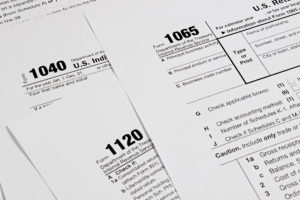
Year-end tax planning can be incredibly stressful for owners of small businesses.
As the end of the year approaches, small business owners must take proactive steps to ensure their financial house is in order. Year-end tax planning is not just about preparing for tax season; it’s an opportunity to optimize your business’s financial health, minimize tax liabilities, and set the stage for a strong start to the new year.
Review Your Financial Statements
Start by thoroughly reviewing your financial statements, including your income statement, balance sheet, and cash flow statement. Understanding your current financial position helps you identify potential tax-saving opportunities. Look for any discrepancies or areas where you could adjust spending or revenue recognition to benefit your tax situation.
Maximize Business Deductions
Take full advantage of all available business deductions. Common deductions for small businesses include:
- Office Supplies and Equipment: Stock up on office supplies or upgrade equipment before year-end.
- Vehicle Expenses: If you use a vehicle for business, consider mileage or actual expense deductions.
- Professional Fees: Deduct fees for legal, accounting, and consulting services.
- Employee Benefits: Bonuses, health insurance, and retirement contributions made before year-end may be deductible.
Tracking and categorizing these expenses throughout the year can ensure you don’t miss any deduction opportunities.
Defer Income and Accelerate Expenses
Deferring income into the next tax year and accelerating deductible expenses into the current year can help reduce your taxable income. For example:
- Defer Income: Delay sending invoices until January if you operate on a cash basis and expect to have a similar or lower tax rate next year.
- Accelerate Expenses: Prepay certain expenses, such as rent, utilities, or insurance, to take advantage of the deductions in the current year.
Consult a tax professional to determine if this strategy aligns with your business’s financial goals.
Take Advantage of Section 179 and Bonus Depreciation
If your business needs new equipment, consider making the purchase before year-end. The Section 179 deduction allows businesses to deduct the full cost of qualifying equipment and software in the year it is purchased. Additionally, bonus depreciation can be applied to certain assets, further reducing your taxable income.
Contribute to Retirement Plans
Contributing to a retirement plan benefits both your employees and your tax liability. Small business owners can explore various retirement plan options, such as:
- SEP IRA
- SIMPLE IRA
- 401(k) Plans
Contributions made before year-end are generally deductible, helping you lower your taxable income.
Consider Tax Credits
Tax credits can significantly reduce your tax liability. Unlike deductions, which lower taxable income, credits reduce the amount of tax you owe. Some popular tax credits for small businesses include:
- Work Opportunity Tax Credit (WOTC)
- Research and Development (R&D) Credit
- Small Business Health Care Tax Credit
Ensure you’re familiar with the eligibility requirements and filing deadlines for these credits.
Review Estimated Tax Payments
If your business makes estimated tax payments, review your payments to date and adjust your final quarterly payment if necessary. Underpaying estimated taxes could result in penalties, while overpaying ties up funds that could be used for business operations.
Plan for Next Year
Year-end tax planning is also about setting the foundation for the upcoming year. Use insights from this year’s financial performance to create a tax strategy for the new year. Consider updating your accounting systems, adjusting your estimated tax payments, and reviewing your business structure for potential tax benefits.
Consult a Tax Professional
Tax laws and regulations change frequently, and staying compliant can be challenging. Working with a tax professional ensures you’re maximizing tax savings while avoiding costly mistakes. They can provide personalized advice based on your business’s unique circumstances and keep you informed about any new tax law changes.
Trust the Professionals at the Harding Group
Unlike other accounting firms, The Harding Group, located in Annapolis, MD, will never charge you for consultations and strive for open communication with our clients.
Are you interested in business advising, tax preparation, bookkeeping and accounting, payroll services, training + support for QuickBooks, or retirement planning? We have the necessary expertise and years of proven results to help.
We gladly serve clients in Annapolis, Anne Arundel County, Baltimore, Severna Park, and Columbia. If you are ready to take the stress out of tax time, contact us online or give us a call at (410) 573-9991 for a free consultation. Follow us on Facebook, Twitter, YouTube, and LinkedIn for more tax tips.
This entry was posted on Thursday, December 5th, 2024 at 4:55 pm. Both comments and pings are currently closed.

 Back
Back